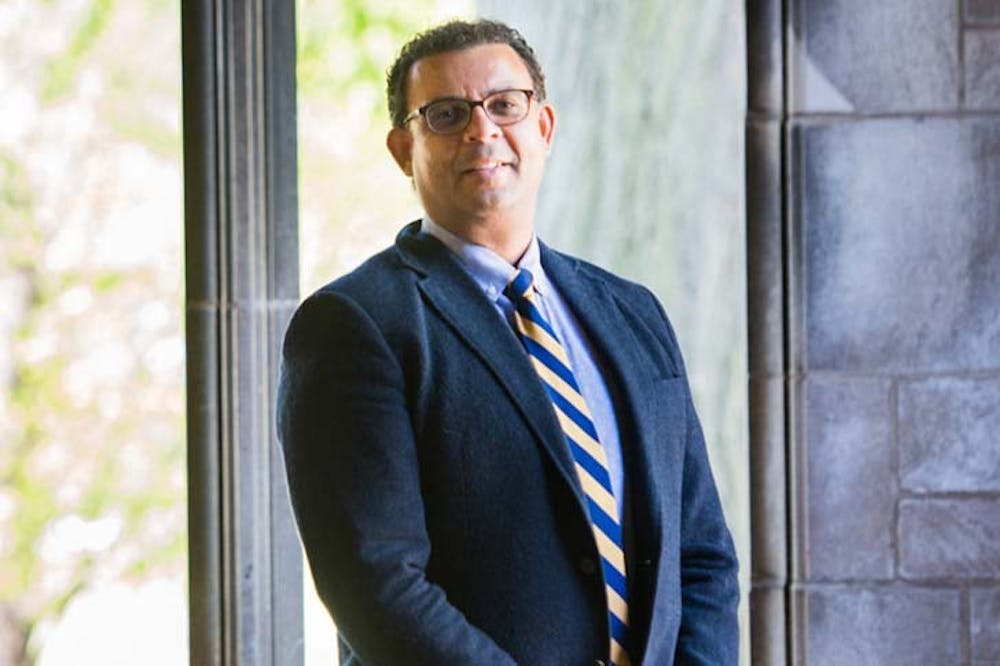
A new director has taken the reins at the Penn Museum in a year that has brought several major controversies.
Christopher Woods, who assumed the role of Williams director of the Penn Museum on April 1, sat down with The Daily Pennsylvanian to discuss his goals and how the Museum will address widespread criticism — including towards the Museum's "unethical possession" of the Morton Cranial Collection and its handling of MOVE bombing remains — under his tenure.
Woods said the Museum will repatriate the Morton Collection, as it previously announced in April.
The collection of about 1,000 crania possessed by the Penn Museum included crania from individuals who were enslaved, prompting students and West Philadelphia residents to hold protests to demand that the Museum repatriate the remains. The Museum removed the remains from public view last year before announcing repatriation this year and formally apologizing for its "unethical possession of human remains."
“The repatriation and reburial and reuniting of human remains with their ancestor communities is going to be a very important part of the Museum’s work moving forward,” Woods said. “This is something that we’ve been working very hard on, and we’ve been making a number of hires and improvements, particularly to the physical anthropology space.”
Following several controversies over the Museum's alleged unethical possession of human remains, Woods said the Museum will revise its existing human remains policies, appoint staff to ensure adherence to these policies, and inventory the contents of its collections.
“An important part of this is changing the institutional culture around adherence to policies and developing a policy for human remains that prioritizes human dignity above all else,” he said.
Woods said “internal work” will be done to improve the Museum's diversity efforts, including making a number of new hires such as the Museum’s first chief diversity and people’s officer, as well as a head of collections. The Museum is also investing $250,000 into the physical anthropology space.
“The repatriation and reburial and reuniting of human remains with their ancestor communities is going to be a very important part of the Museum’s work moving forward,” Woods said. “This is something that we’ve been working very hard on, and we’ve been making a number of hires and improvements, particularly to the physical anthropology space.”
Woods added that the Museum will work on improving its relationship with the West Philadelphia community in light of the widespread controversy over its possession of human remains from the MOVE bombing.
“In the wake of what's happened with the MOVE situation, there’s a lot of repair to be done with our West Philadelphia neighbors,” he said. “Now we have to look forward and make sure that something like this never happens again.”
In 1985, the Philadelphia city government bombed a home on Osage Avenue that housed MOVE, a Black liberation advocacy group, killing 11 people, including five children aged seven to 13.
Now-retired Penn professor Alan Mann first received the remains in 1985 after the Philadelphia Medical Examiner’s Office asked for assistance in identifying them. Mann later studied the remains with Janet Monge, curator-in-charge of the Penn Museum's physical anthropology section. The remains, a pelvic bone and a femur, were transferred back and forth between Penn and Princeton University for over 35 years and were used by Monge in an online Princeton course.
A Penn-commissioned investigation concluded that Monge and Mann demonstrated "extremely poor judgment and gross insensitivity" in their handling of the remains. The remains were ultimately returned to the Africa family in July.
In addition to the new chief diversity and people’s officer and head of collections, Woods plans to hire a new bioanthropologist and bioarchaeologist who will have full tenure tracks and curatorships at the Museum.
“I think our goal is not simply to avoid problems or avoid embarrassments, but really to be a leader in this domain,” he explained. “The Museum will be in a much stronger position in terms of the ethical stewardship of human remains than it was before April 1.”
Several of the Museum's planned courses of action were recommended by the Penn-commissioned investigation report authored by The Tucker Law Group in August.
Woods also hopes to further engage Penn students and Philadelphians with the Museum and increase the Museum's visibility on campus by offering new programs for Philadelphia students and increasing advertising efforts.
The Museum is currently open to visitors Tuesdays through Sundays from 10 a.m. to 5 p.m. with face coverings and social distancing required.
The Daily Pennsylvanian is an independent, student-run newspaper. Please consider making a donation to support the coverage that shapes the University. Your generosity ensures a future of strong journalism at Penn.
Donate







